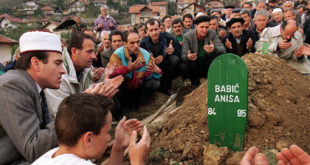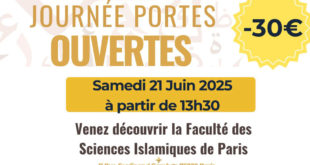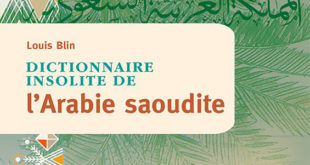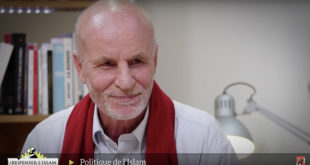The President of the European Commission, Ursula von der Leyen, announced on Monday an agreement with Azerbaijan to double “in a few years” the imports of gas from the European Union from Azerbaijan.
“The EU is turning to more reliable energy suppliers. I am in Azerbaijan today to sign a new agreement. Our goal: to double Azerbaijan’s gas deliveries to the EU within a few years. (This country) will be an essential partner for our security of supply and on the way to climate neutrality,” Ms von der Leyen said on Twitter.
As winter approaches, concern is growing in European countries about the risk of a power cut. Brussels has asked each Member State to reduce its gas consumption by 15% within eight months to deal with a possible total closure of the Russian tap.
Faced with the specter of scarcity, Europe is looking for new partners. Azerbaijan is one of them.
Last year, Azerbaijan supplied some 8 billion cubic meters of natural gas to Europe via pipelines passing through Georgia and Turkey. Naturally, the 12 billion cubic meters of gas promised by Azerbaijan will not be enough to replace the 155 billion imported each year from Russia, which represents nearly 40% of its needs. Europe will also have to import gas from other countries such as the United States, Qatar, Norway or Algeria.
Europe’s energy independence from Russia will take time and Europe will still have to save money to get through the winter without disruption.
But the interest of Azerbaijani gas is also elsewhere.
Freeing Europe from its dependence on Russia
In May, EU leaders approved a halt to most Russian oil imports by the end of the year, as part of sanctions against Moscow. But they have carefully avoided taking sanctions that could affect their imports of Russian gas which, it should be remembered, covers nearly 40% of their needs.
Azerbaijani gas should contribute to helping Europe get rid of its dependence on Russia, and therefore to have a freer hand to impose sanctions on them.
Looking for a reliable supplier
For Europe, the danger comes mainly from the fact that Russia uses gas as a dissuasion weapon. “Russia uses energy as a weapon. And so, in any case, whether it is a partial and major cut off of Russian gas or a complete cut off of Russian gas, Europe must be ready,” warned Ursula von der Leyen. “
« The EU is turning to more reliable energy suppliers” she added, during her visit to Azerbaijan.
The Nord Stream gas pipeline which transports Russian gas to Germany was stopped for ten days, sowing panic in Berlin, despite Putin’s explanations which attributed this cut to a simple maintenance procedure. Finally, the pipeline restarted as planned, but Europe understood that the threat of an unexpected shutdown of the taps was very real, and that Moscow was skillfully playing on this subliminal blackmail.
In other words, Moscow is no longer a reliable partner, especially since Russia has reduced the flow by more than a third since the start of the war in Ukraine, causing prices to soar, and above all preventing Europe to fill its stocks like every year before the cold season. European storage facilities are only about 64% full. Europe had to anticipate.
To guarantee both its independence from Moscow and its energy security, Azerbaijan appears to be the ideal partner. Azerbaijan, which, from the start of the ukrainian conflict, sided with Europe, wishes to draw closer to it economically and culturally. Conversely, Europe has every interest in strengthening its ties with a region which, from the Caucasus to Central Asia, has immense natural wealth and strong growth potential.
As stated the President of the European Commission, the benefit of this collaboration will also be expressed in the field of energy transition. The EU and Azerbaijan share the ambition to accelerate the development and deployment of sustainable energy production and transmission capacities. Azerbaijan has huge renewable energy potential, especially in the offshore energy sector, which Europe may also need to secure its energy needs.
France sits on the fence
France, for its part, seems to adopt an ambiguous position on this subject. Less dependent than Germany on Russian gas, thanks in particular to its nuclear installations, it remains greatly influenced by the strong pressure exerted on politicians and the media by the powerful French Armenian community, literally taken hostage by the ultra-nationalists. Even if Mourad Papazian, one of the leaders of this movement in France has been banned by the Armenian government, many politicians and journalists, such as the president of the PACA region Renaud Muselier, or the editor-in-chief of Figaro Magazine Jean -Christophe Buisson, became the spokespersons of the Armenian nationalists by criticizing this agreement which risks, according to them, to contribute to a stabilization of the region at the expense of the irredentist Armenian aspirations.
Nevertheless, underlines a press release from the European Commission: “The EU has reaffirmed its firm will to promote a South Caucasus which is secure, stable and prosperous. The EU underlined its determination to help the parties make progress towards a comprehensive peace agreement between Azerbaijan and Armenia. Furthermore, the EU stressed the importance of preparing people for a long-term sustainable peace through positive and constructive public statements. It also highlighted the support it provides to deal with the consequences of the conflict, including providing assistance with mine clearance and with regard to other outstanding humanitarian issues”.
This contestation of the Europe-Azerbaijan agreement is above all the prerogative of the french radical right-wing, which continues to blast away at the rapprochement between the West and the « Muslim » countries, even if, in this case , Azerbaijan is a totally secular country.
 Musulmans en France L'actualité des musulmanes et musulmans en France
Musulmans en France L'actualité des musulmanes et musulmans en France



